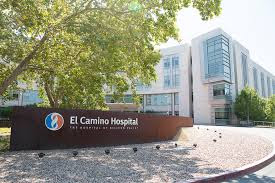Well, St Patrick’s day has come and gone.
 |
| The Irish take St Patrick's day seriously Well, for some value of the word ‘seriously’ |
At the time I was working for the UK end of an American Hospital Information System company, then called TDS. On one occasion, I took two doctors from Belfast City Hospital out to the States to visit some of our best implementations, including a bit of a showcase, El Camino hospital in Silicon Valley.
My American colleagues had prepared name badges for our guests. Those for my two showed them as being from ‘Belfast City Hospital, Ireland’. Now, that was strictly true. On the other hand, the single word ‘Ireland’ did rather blur the distinction between the Republic of Ireland, an independent nation, and Northern Ireland, still part of the UK, despite feelings about that status which I suppose could best be described as ‘mixed’.
The distinction, I admit, is the culmination of nothing more significant than about nine centuries of struggle, dotted with massacres, pitched battles, bomb blasts, tortures and assassinations. Some might regard those events as sufficiently important to deserve recognition. Others, apparently, weren’t even aware of them.
In passing, I should say that the blindspot isn’t specifically American. Before travelling to the States with these guests, I’d visited them in Belfast with a colleague from London. The day before we travelled there, she’d come to see me.
“Will I need a passport?” she asked.
These were the innocent days when you could still travel on domestic flights without photo ID.
“And do I need to convert some money?” she went on.
I carefully explained that this was technically a domestic flight and that the pound sterling was legal tender in Northern Ireland, seeing as it was still within the United Kingdom. I resisted the temptation to ask whether she might have noticed that this issue had been widely covered in the press and on TV, with occasional reports of bomb blasts or of heavy-handed police (if not army) action in response. She clearly hadn’t made the connection.
Anyway, if an understanding of Norther Ireland’s position had slipped right past a citizen of the nation that had spilled so much blood, some its own, more of it Irish, to secure its status, how could I criticise Americans who’d missed the information too?
 |
| “Never, never, never, never” To be fair, Paisley got nicer later |
My guest in California was far less strident (I’m glad to say – my eardrums couldn’t have taken it) than Paisley, but had the same accent.
Neither of us was particularly interested in St Patrick’s day, he as a Protestant, I as – well, as me, I suppose. So we had no idea in advance that our visit to El Camino was happening on the day itself.
He, unaware that the date meant the action was particularly rich in symbolism, unthinkingly put on a green sweatshirt that morning.
 |
| El Camino hospital Visited on the wrong day for one of the guests I took |
Everywhere we went in El Camino that day, we’d be constantly distracted from the software and medical wonders before us, as people came up to him and warmly wished him, “Happy St Patrick’s Day”.
And each time he would respond, in a tone more gentle but just as forceful as Ian Paisley’s, “we don’t celebrate it”.
If you can, please read those words in Paisley’s accent, for the sake of authenticity.
Never before or since have I seen as many people wandering away, bemused and uncomprehending, from what they’d expected to be a cordial exchange of good wishes, bruised by so surprising a reaction.
It’s too late to wish you a Happy St Patrick’s Day this year. Can I can get away with just hoping you had a good one? Perhaps you can forgive me since, as it happens, we don’t actually celebrate it.
2 comments:
I do celebrate it, sort of. I'm orange irish on my dad's side and green irish on my moms. Both those strains of irishism are mixed, though. the orange irish with english, scottish, and a touch of german. The green irish with welch. If you ever wondered why I'm often confused, though, you can probably see it here.
Ah, well. Those mixtures can indeed seem confusing, at least at first glance. But when we admit that the distinctions are actually all arbitrary, and fictitious, and basically what you really is a person, like any of the other 7 billion people, the confusion itself is clearly nothing but an artefact...
Post a Comment